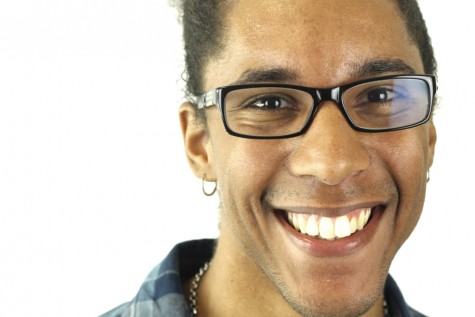Students to find ‘Financial Peace’ in money-saving seminar
February 19, 2015
A nine-week program allowing students and members of the community to learn how to manage money and debt issues will begin at 7 p.m. Feb. 25 and every following Wednesday until April 29 in Lumpkin Hall.
Jeff Oetting, an instructor in business, said “Dave Ramsey’s Financial Peace University,” which is being offered by the Sustainable Entrepreneurship though Education and Development Center and Life Centers, will allow participants through video teaching, discussion and group activities to learn how to manage money and debt.
Oetting, who has been doing the program for five years, said it is “amazing” and has gotten generally positive feedback from those who have participated in the past, confiding that they are now debt free from enrolling.
Oetting said Ramsey is a man of action and not a big fan of credit cards and would rather spend money in debit or cash. People who pay with cash can actually feel the purchase as opposed to swipe and go.
“He created a discipline (that’s) like a diet,” Oetting said.
The average debt a person may have can range from $30,000 to $70,000. These numbers can be a combination of credit card payments, mortgages or loans, and every scenario is different, Oetting said.
Oetting said when students are given credit cards they are “opening Pandora’s box” and being temped into bad spending habits that are easy to fall into.
Oetting said that spending patterns could be gender-specific.
Typically, a man’s most common spending involves items for their significant other. Women usually buy more clothing and cosmetic items.
Oetting said spending patterns could also depend on the age of the consumer; for students, the general top purchases are food-related products.
The assumption of having a job immediately following graduation to pay off the credit card debts sets bad habits for students, because this may not always happen, Oetting said.
“It’s a bad habit to start, once you start it’s a hard habit to reverse, I think it can be just as addicting as smoking,” Oetting said.
Spring break is a time where students typically use their credit cards the most.
Oetting said students go on a spending spree at a nice location and when they comeback see their credit card statement, they might not have the funds to pay it all off, so they make the minimum payments.
“It’s so easy to go out and have your weekend binges,” Oetting said.
Oetting said those who miss a payment could be subjected to 25 or a 30 percent increase in interest, which is one of the ways credit card companies make their money.
For example, say a person’s credit card limit is $200 and they spend $75 of that limit and miss a payment. Their interest could be a 25 percent increase. Now, instead of paying $75, they are now paying $93 if the interest is compounded monthly, Oetting said.
“It’s crazy,” Oetting said.
Oetting believes that credit cards, which are essentially a form of a bank, are a trap that many people including students, fall into because they only make the minimum amount of payments.
He said this is exactly why the United State fell into the recession it did in terms of housing because home owners were being told their homes were worth more than they actually were.
“It was a lie—a trap,” Oetting said.
Oetting said the goal of the courses are to allow students and community members to learn better long-term spending and saving habits for managing their money.
“Financial Peace University” requires a $100 for the nine-week courses.
Roberto Hodge can be reached at 581-2812 or rlhodge@eiu.edu.


















![[Thumbnail Edition] Senior Foward Macy McGlone, getsw the ball and gets the point during the first half of the game aginst Western Illinois University,, Eastern Illinois University Lost to Western Illinois University Thursday March 6 20205, 78-75 EIU lost making it the end of their season](https://www.dailyeasternnews.com/wp-content/uploads/2025/03/WBB_OVC_03_O-1-e1743361637111-1200x614.jpg)
















































